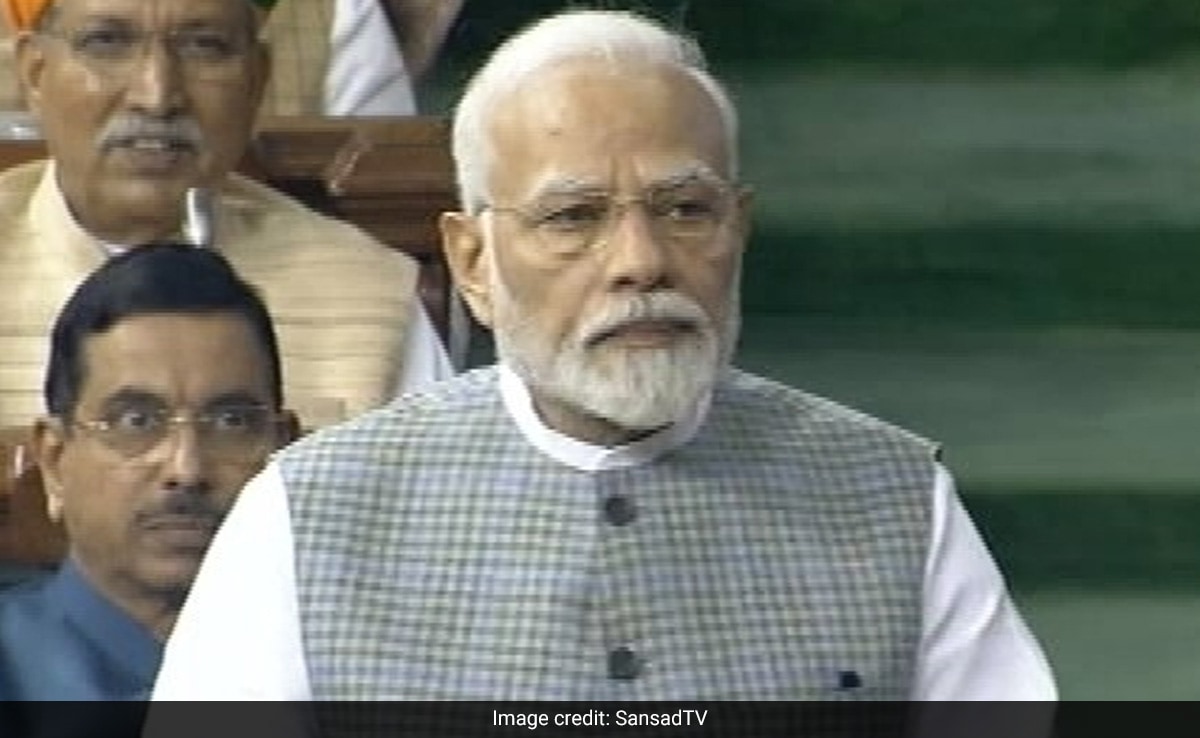
Prime Minister Narendra Modi on Monday hailed “historic decisions” – referring to his government’s controversial moves on Article 370 and the GST and ‘One Rank-One Pension’ bills – in opening remarks on the first day of a special session that will see Parliament shift to a new building.
In a lengthy speech – which included jabs at the opposition – the Prime Minister recalled “bitter-sweet memories” associated with the old building, including the terror attack of 2001.
“The House will always say proudly that (the abrogation of) Article 370 became possible due to it… GST was also passed here… ‘One Rank-One Pension’ was witnessed (and) 10 per cent reservation for Economically Weaker Sections was successfully allowed for the first time without dispute,” he said.
“Bidding goodbye to this building is an emotional moment…many bitter-sweet memories associated with it. We had differences and disputes but we witnessed ‘parivaar bhaav’ (‘feeling of family’),” he continued as MPs from the ruling Bharatiya Janata Party thumped their desks in agreement.
“There was a terror attack (on Parliament). This was not an attack on a building…. in a way, it was an attack on the ‘Mother of Democracy’… on our living soul. The country can never forget that incident,” he said as he paid tribute to security personnel who were killed in that attack.
The reference to India as the ‘Mother of Democracy’ was a repeat of what was said in material handed to G20 leaders and foreign officials during the summit in Delhi earlier this month.
The description of India as such had raised eyebrows then and many pointed out it was an honorific usually reserved for Greece; most historians agree the concept (and even the name) of democracy originated in the ancient city-state of Athens, now the Greek capital, around 500 BC.
Striking nostalgic notes, the PM also recalled his first memories of the old Parliament building.
READ | Parliament Special Session Begins, PM Addresses Lok Sabha: 10 Facts
When I first entered… as an MP… I bowed down and honoured the ‘Temple of Democracy. It was an emotional moment… I could have never imagined a child from a poor family, living on the railway platform, would ever be able to enter Parliament. I never imagined I would get so much love…”
“All of us are saying goodbye to this historic building. Before Independence, this was the place for the Imperial Legislative Council. After Independence, this gained the identity of Parliament. It is true the decision to construct this building was taken by foreign rulers but we can proudly say the toil, hard work and money that went into the construction was that of (our) countrymen.”
The Prime Minister also praised the Chandrayaan-3 Moon mission and said India had “made the world proud… highlighted a new form of India’s strength”. He also spoke about the success of the G20 Summit and attributed it to ” 140 crore citizens… not any individual or party”.
“Today… you have unanimously appreciated the success of G20. I express my gratitude to you. The success of G20 success is that of 140 crore citizens of the country. It is India’s success (and) not that of an individual or a party. It is a matter for all of us to celebrate,” the Prime Minister said.
“India will be proud the African Union became a member (of the G20) when it was President… I cannot forget the emotional moment when the announcement was made… (the) African Union President (Azali Assoumani, President of Comoros) said, ‘Perhaps I will break down while speaking’.”
The Prime Minister also referred to the historic Delhi Declaration and said negotiating the joint communique from G20 leaders underlined India’s strength and standing in the world.
The Delhi Declaration was seen as nearly impossible till hours before it was announced due to complexities arising from Russia’s war on Ukraine and the West’s stance on the conflict.
“You can imagine (role) India had to fulfil… such huge hopes and expectations. It (was) India’s strength that (made) it (the declaration) possible,” Prime Minister Modi declared.




